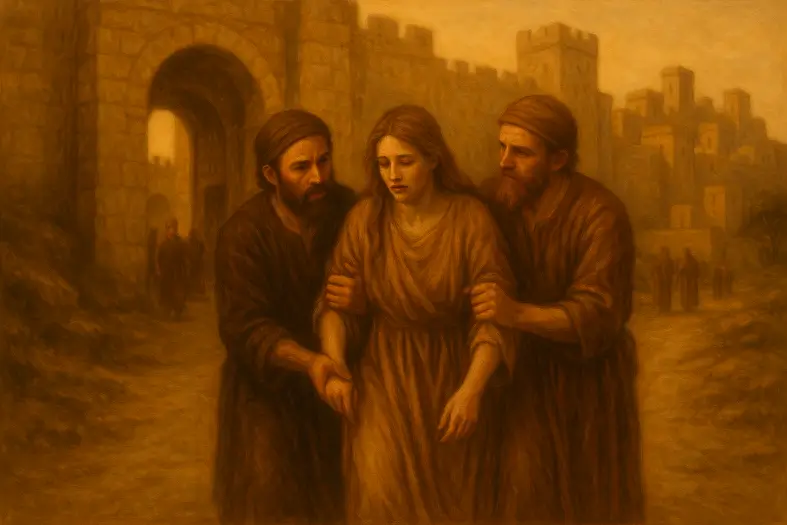


It is forbidden to oppress or exploit the weak, including strangers, widows, and orphans.
This mitzvah commands Israel not to exploit or mistreat those in vulnerable positions. Rambam (Hilchot De’ot 6:10) stresses that widows, orphans, and converts deserve special protection, since their emotional pain is greater. Sefer HaChinuch (Mitzvah 65) explains that Hashem defends the weak directly, promising severe punishment for their oppression.
The Talmud (Bava Metzia 59b) warns that the Torah repeats the prohibition against oppressing the stranger 36 times, highlighting its importance. Rashi (Exod. 22:21) explains that Israel’s own suffering in Egypt demands empathy toward the vulnerable. Ramban notes that mistreating them is an affront to Hashem Himself, who is their protector. Midrash (Shemot Rabbah 30:13) stresses that oppressing them is tantamount to provoking Divine anger.
Commentary & Classical Explanation:
Contrast with Justice (Mitzvah 15–17):
Parallel to Charity (Mitzvah 250):
Protecting the Vulnerable
Sensitivity in Speech and Action
Universal Compassion
Severe Accountability
Social Justice and Community Responsibility
Kiddush Hashem Through Care


Acts of generous giving that extend beyond obligation — offering help, support, or goodness simply because another person exists. Chesed is proactive, abundant care that heals the world through open-hearted action.
Empathy in motion — responding to another’s pain with sensitivity, patience, and understanding. Whereas chesed gives broadly, rachamim responds gently, tailoring care to a person’s emotional or spiritual needs.
Mitzvot that uphold fairness, honesty, and moral responsibility. Justice is kindness structured — ensuring that society reflects G-d’s order through truth, equity, and accountability.
Practices that cultivate inner modesty and self-awareness. These mitzvot teach us to step back from ego, create space for others, and recognize our place before G-d.
Mitzvot that strengthen communal life — showing up, participating, supporting, and belonging. Community is where holiness is shared, prayers are multiplied, and responsibility becomes collective.
Mitzvot that govern ethical behavior, kindness, justice, and responsibility in human relationships. These actions build trust, dignity, and peace between people.
Mitzvot that define and deepen the relationship between a person and their Creator. These include commandments involving belief, prayer, Shabbat, festivals, sacrifices, and personal holiness — expressions of devotion rooted in divine connection.

Dive into mitzvos, prayer, and Torah study—each section curated to help you learn, reflect, and live with intention. New insights are added regularly, creating an evolving space for spiritual growth.

Explore the 613 mitzvos and uncover the meaning behind each one. Discover practical ways to integrate them into your daily life with insights, sources, and guided reflection.

Learn the structure, depth, and spiritual intent behind Jewish prayer. Dive into morning blessings, Shema, Amidah, and more—with tools to enrich your daily connection.

Each week’s parsha offers timeless wisdom and modern relevance. Explore summaries, key themes, and mitzvah connections to deepen your understanding of the Torah cycle.